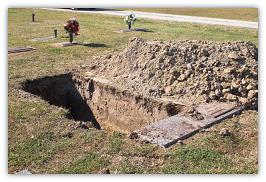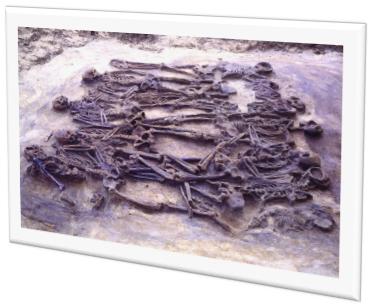The Belgic Confession of Faith: Article 17
The Belgic Confession of Faith: Article 17
In Article 16 we read of God's good pleasure and eternal election wherein we saw how God was moved within Himself and had thoughts of peace toward a fallen sinner. In Article 17 we will hear about the manifestation of this good pleasure – that is, in the recovery of the fallen sinner.
Man had thrown himself into wickedness and misery. Now we hear of that again, although this article is about redemption. It speaks about the covenant of grace and about the redemption of the fallen sinner; but the emphasis is first of all upon the state wherein man has thrown himself. The word 'thrown' signifies activity. Man has not just fallen into it, as if he could not help himself; he did not stumble over the edge and fall down when the pressure was too much for him; No, he threw himself willfully and foolishly into temporal and eternal death.
Our forefathers always placed the wonder of God's grace and all His gracious dealings over against the background of our fall and misery. This is very instructive also for us today. One can never preach deliverance rightly without placing it over against the background of our fall and our misery. One can never glorify and magnify the one-sided work of God without referring to the state in which man has thrown himself.
 This state of death was three-fold 1) temporal – the separation of soul and body; 2) spiritual – the loss of God's image and the fellowship with God, so that the conscience of man was filled with terror and distress, and darkness came over his soul, for the rest and harmony were gone; and 3) eternal death – unless the Lord Himself comes and intervenes. "And as it is appointed unto men once to die" (Hebrews 9:27).
This state of death was three-fold 1) temporal – the separation of soul and body; 2) spiritual – the loss of God's image and the fellowship with God, so that the conscience of man was filled with terror and distress, and darkness came over his soul, for the rest and harmony were gone; and 3) eternal death – unless the Lord Himself comes and intervenes. "And as it is appointed unto men once to die" (Hebrews 9:27).
It is against this black background that our forefathers wrote about God's intervention – of His intervening in time and of God's thoughts and acts to recover fallen sinners. It was not that man, after having thrown himself into that deep pit of misery and separation, began to cry, or, after having brought himself into this state of death, he began to ask for life; or, after separating himself from God, he began to cry for restoration. No, man cannot change himself. Jeremiah 13:23 says, "Can the Ethiopian change his skin or the leopard his spots?" The Lord Jesus Himself has said in John 6:44, "No man can come to Me, except the Father which hath sent Me draw him." You can find the picture of man in Romans 3.
Smijtegelt, one of our forefathers, described man's state, and I will briefly quote from one of his works which deals with the catechism.
"Man, the sinner, is now an evil tree with evil fruits, a servant of sin as one dead. That means that he is blind. He doesn't see that he is miserable and lost. That means, in the second place, he doesn't hear. We read in the Word, 'Hearing ye shall hear and not understand.' He has no taste for the sincere milk of the Word of God. He has no fear of God's wrath – at least not a right fear. He is cold and indifferent. There is no true prayer, no true fasting. He doesn't loathe himself as the living one does the dead one, but imagines that he lives quite respectably. He likes the company of the dead. He associates with them and he doesn't feel at ease among the living ones. The living ones in turn loathe him and say with Abraham, 'That I may bury my dead out of my sight.' There comes a separation between those that are alive and those that are dead. They are exceedingly unable and incapable to do any good. They do not resist sin. There is not one movement or activity in that dead corpse, but only the works which are our transgressions. A mass of worms is what we see in that dead corpse."
 This language is not so pleasant for our carnal heart. There is nothing in man, but there is One who can quicken that dead sinner and give him a new heart and a new spirit within him. He can take away that stony and dead heart out of their flesh. There is One who can say, "Awake thou that sleepest, and arise from the dead, and Christ shall give thee light" (Ephesians 5:14). It is He who caused the walls of Jericho to fall down, who made the dry bones in the valley of Ezekiel to live, who cured Naaman of his leprosy, who called Lazarus to come forth out of the grave, and who will in the last day, in the day of judgment, also call the dead and say, "Arise, thou that are dead, and come to judgment," for nothing is impossible with Him.
This language is not so pleasant for our carnal heart. There is nothing in man, but there is One who can quicken that dead sinner and give him a new heart and a new spirit within him. He can take away that stony and dead heart out of their flesh. There is One who can say, "Awake thou that sleepest, and arise from the dead, and Christ shall give thee light" (Ephesians 5:14). It is He who caused the walls of Jericho to fall down, who made the dry bones in the valley of Ezekiel to live, who cured Naaman of his leprosy, who called Lazarus to come forth out of the grave, and who will in the last day, in the day of judgment, also call the dead and say, "Arise, thou that are dead, and come to judgment," for nothing is impossible with Him.
We read in Philippians 2:13, "For it is God which worketh in you both to will and to do of His good pleasure." It is He of whom the prophet speaks in Ezekiel 36:26-27, "A new heart also will I give you…"
How can the Lord do this work? How can He quicken sinners? He does this at various stages of their life. Some He quickens in their childhood years, like He did a Timothy. Others He quickens in their youth and young manhood, or even a little later, as with Matthew. Matthew had already lived for some years and was an adult in the house of customs when the Lord called him and he left his sinful practice. The Lord may also convert in old age as with Abram, who was called out of Ur of the Chaldees. He can do it even in the last hours of our life, as with the thief on the cross, although this rarely happens. In all these instances it is God who quickens the sinner.
This quickening work is necessary in order that we may live unto Him and glorify our Maker. It has pleased the Lord to choose a people for Himself and to make them alive. Our fathers say that God in His wisdom does this. Wisdom is required. Do you know why? There are two things which can never be reconciled by human activity. The justice and the truth of God said, "The soul that sinneth, it shall die" (Ezekiel 18:4). But the mercy of God said, "Let him live." There was as it were a holy conflict. But now in His wisdom, the Lord found a way in which justice would be satisfied, not abolished. It would be fully satisfied, and the truth established and confirmed. He would open a way based on justice, in which He could pour out His love and show His mercy unto fallen, wretched sinners who had plunged themselves into that deep misery. This is a way of wisdom. That wisdom will be admired when it is revealed to God's people. Then they will say, "Oh Lord, what a perfect way! Thy honor and Thy name are not damaged by it, but they are even magnified and exalted. Sinners will be saved in such a sure and perfect way that nothing is lacking. Oh, what a way of wisdom." Now the Lord can give them a place among the children. Wisdom was necessary to find such a plan, such a covenant, and to open such a way in which sinners could be saved in an honest way.
 We see not only wisdom, but also goodness, for this way is unmerited and undeserved. The Lord was not obliged to do this. In His wisdom and goodness the Lord was pleased to provide a way. It was not because there was any reason in fallen man, but the Lord was pleased to seek and comfort man. This brings us back to Paradise. There we can see Adam and Eve hiding themselves behind a bush. They were covered with fig leaves, which cannot hide a person from God. When the Lord came to them, they were trembling before Him. The peace, the rest, and the harmony which they had were gone, and now there was only fear. Sometimes a child or an adult will tremble when they hear thunder and see the lightning in the sky. They seek a place where they think they are safe. Adam and Eve likewise trembled, because they saw the thunder of God's wrath and they experienced the displeasure of God. They sought for a hiding place, but what a poor hiding place this was. The Lord, however, was pleased to "seek him." What does that imply? The Lord says that whosoever seeketh Him early shall find Him. We are called to seek Him in the way of the means of grace. "Seek ye the Lord while He may be found" (Isaiah 55:6). Are there such seekers? Notwithstanding, what do we read here? Adam was not seeking God.
We see not only wisdom, but also goodness, for this way is unmerited and undeserved. The Lord was not obliged to do this. In His wisdom and goodness the Lord was pleased to provide a way. It was not because there was any reason in fallen man, but the Lord was pleased to seek and comfort man. This brings us back to Paradise. There we can see Adam and Eve hiding themselves behind a bush. They were covered with fig leaves, which cannot hide a person from God. When the Lord came to them, they were trembling before Him. The peace, the rest, and the harmony which they had were gone, and now there was only fear. Sometimes a child or an adult will tremble when they hear thunder and see the lightning in the sky. They seek a place where they think they are safe. Adam and Eve likewise trembled, because they saw the thunder of God's wrath and they experienced the displeasure of God. They sought for a hiding place, but what a poor hiding place this was. The Lord, however, was pleased to "seek him." What does that imply? The Lord says that whosoever seeketh Him early shall find Him. We are called to seek Him in the way of the means of grace. "Seek ye the Lord while He may be found" (Isaiah 55:6). Are there such seekers? Notwithstanding, what do we read here? Adam was not seeking God.
Man in his misery does not seek for some cure, or in his darkness ask for some light. Man sitting in his prison does not try to open it; no, he sleeps there. He does not think it to be a prison. He thinks of it as a kind of paradise, a beautiful garden. This is what that liar told him. He thinks he is free while the chains bind him to the devil, to sin, and to the power of darkness. There is no desire and no seeking. He says, "Am I blind? No, I am quite good, although I am not perfect." He thinks that he is not as bad as is written here, not even when he is brought up under the truth. We neither seek God nor ask for Him. We read in Psalm 14 that there is none that seeketh after God. There is none righteous, no, not one. There is none that understandeth. They are all gone out of the way, they are together become unprofitable.
Has this become our picture, that there is none that doeth good, no, not one? Yet the Lord began to seek. He sought man. He said, "Where art thou?" No, not "Adam, where art thou?" No, Adam had lost his name. He was nothing but a poor, blind, and naked sinner. It pleased the Lord to seek and to comfort him. Already in the Counsel of Peace the Lord asked for a way to give them a place among the children. Who was He who would engage His heart? There is a seeking God, seeking for a way in which He could restore sinners in an honest way, in a way of satisfaction and righteousness, and to the glory of His Name. When He heard, "Lo, I come, in the volume of the book it is written of Me," and "I will be Surety for him," then that covenant was established between the Father, representing the Trinity, and God the Son, the Mediator of this covenant, representing His church. In Him the Lord had found the way in which He would be glorified and sinners would be saved.
The Lord came to seek man after his fall, for this article speaks not only about the foundation, but also about the manifestation of that good pleasure. Then the Lord called Adam. When Adam came trembling before the Lord, the Lord spoke. It was a precious promise, "I will put enmity between thee and the woman, and between thy seed and her seed; it shall bruise thy head, and thou shalt bruise His heel" (Genesis 3:15). This was the manifestation of the covenant of grace. Those covenant promises are in Christ, yea, and in Him they are Amen. They are for those who are given unto Christ – for His elect people. In that covenant everything is provided. David not only spoke about certain invitations to him in that covenant which he must respond to, but he said, "Although my house be not so with God; yet He hath made with me an everlasting covenant, ordered in all things, and sure: for this is all my salvation, and all my desire, although He make it not to grow" (2 Samuel 23:5).
That covenant stands in Christ. It is confirmed in Him. In that covenant were included fallen, lost sinners in themselves, but who were given unto the Son. It came with this promise that God would give His Son, who would be made of a woman, to bruise the head of the serpent.
What was the purpose of God in making that covenant? First of all, it was to the glory and honor of His own Name, and the glorification of mercy and justice. But it was also to restore fallen people into true peace and happiness. Many say that if this is also placed under the dominion of election, and those covenant promises are only for the elect, what is there for us? We read in Articles 9 and 10 from Chapters 3 and 4 from the Canons of Dordt:
"It is not the fault of the gospel, nor of Christ, offered therein, nor of God, who calls men by the gospel, and confers upon them various gifts, that those who are called by the ministry of the word, refuse to come…"
 If we go lost, it is not God's fault, but our own enmity. Perhaps we also say inside, "If the Lord would be as willing as I am, I would already have been converted a long time ago; maybe the Lord is not willing." However, our forefathers said that it is not the fault of the gospel, nor of Christ, nor of God. If those who are called by the ministry of the word refuse to come and be converted, then:
If we go lost, it is not God's fault, but our own enmity. Perhaps we also say inside, "If the Lord would be as willing as I am, I would already have been converted a long time ago; maybe the Lord is not willing." However, our forefathers said that it is not the fault of the gospel, nor of Christ, nor of God. If those who are called by the ministry of the word refuse to come and be converted, then:
"the fault lies in themselves; some of whom when called, regardless of their danger, reject the word of life; others, though they receive it, suffer it not to make a lasting impression on their heart."
Their joy arises only from a temporary faith which vanishes and falls away, as we read of the seed in the stony ground in the parable of the sower. However, we must keep the two sides together. Article 9 speaks of man's guilt. Article 10 speaks of the other side:
"But that others who are called by the gospel, obey the call, and are converted, is not to be ascribed to the proper exercise of free will, whereby one distinguishes himself above others, equally furnished with grace sufficient for faith and conversions, as the proud heresy of Pelagius maintains; but it must be wholly ascribed to God, who as He has chosen His own from eternity in Christ, so He confers upon them faith and repentance, rescues them from the power of darkness, and translates them into the kingdom of His own Son, that they may show forth the praises of Him, who hath called them out of darkness into His marvelous light; and may glory not in themselves, but in the Lord according to the testimony of the apostles in various places."
Dear friends, it is so simple! The truth is so clearly displayed. We should not separate what God has joined together. Articles 9 and 10, speaking of man's responsibility and God's sovereignty, belong together. We will perish because of our hardness, our unwillingness, and our rebellion. Our heart must grieve about it when we think about so many, also from among us, who will stand before the throne, on the left hand. All the preaching and all the sermons will come back with all the instructions which you have been given. Then you will not be able to say, "I could not." You will not have one excuse, for you did not want Christ to reign over you. But on the other hand, if we may be saved, then we will say from the bottom of our heart, "It was only Thy good pleasure. I would never have asked for Thee, I would never have sought Thee." God will receive the honor of His work, of which we read in Philippians 1:6, "Being confident of this very thing, that He which hath begun a good work in you will perform it until the day of Jesus Christ." It was not because there was a fit moment, or a suitability in man, or a receptive nature, or a free will, but it was only God's free gift and His unsearchable, eternal, merciful love in Christ. God Himself took the initiative. He revealed His good pleasure after the fall, and now enemies will be reconciled with God. Jesus Christ will deliver His church from the wrath of God and from eternal condemnation as we read in Romans 8:1, "There is therefore now no condemnation to them which are in Christ Jesus."
The covenant of grace was established in eternity. All the elect of the Father are included and received into it and will be saved on the basis of the mediatorial work of Christ. They will share in the privileges of the covenant, in the sure mercies of David. This is the fountain of all blessings.
I would ask you, "Tell me of one child of God who will have a problem with this article." They will say, "No, I agree with article 9, but also with article 10." This doctrine gives hope to those who have lost all their hope in themselves, that even for them there may be a crumb from their Master's table. When they may see that a door has been opened for such a one, they will admire God. "I would never have asked for it, I would have turned away again, I would have spoiled everything; but it is through Thee, through Thee alone, for Thy good pleasure's sake." That will be admired in eternity – there they will give all the glory and all the honor unto God who is worthy.

Add new comment